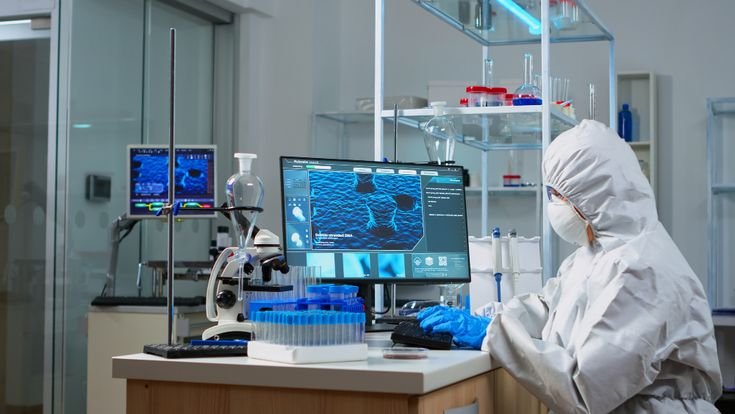Introduction: The Game-Changing World of Biomedical Engineering

Perched next to fast-paced technological as well as healthcare progress, biomedical engineering has grown from a career trope to a device empowering to lead the progression in human health. The need for biomed engineers, which is also necessary for the future, is explored in this very comprehensive guide. or Will Biomedical Engineers Be Needed in the Future
What is Biomedical Engineering? An In-Depth Exploration
Will Biomedical Engineers Be Needed in the Future the deep overview is Biomedical engineering represents the perfect fusion of engineering precision and medical innovation. These professionals are the unsung heroes who:
- Transform complex medical challenges into technological solutions
- Design life-saving medical devices
- Develop cutting-edge diagnostic tools
- Create advanced therapeutic technologies
The Explosive Career Landscape for Biomedical Engineers
Diverse Career Pathways
Biomedical engineers are not confined to a single career track. Their expertise spans multiple exciting domains:
- Medical Device Development Professionals in this sector design sophisticated medical equipment, from advanced prosthetics to minimally invasive surgical tools. Companies like Medtronic and Johnson & Johnson are constantly seeking innovative minds.
- Pharmaceutical Technology Biomedical engineers play crucial roles in drug delivery systems, clinical research, and pharmaceutical innovation. They bridge the gap between molecular research and practical medical applications.
- Healthcare Technology With the rise of digital health, biomedical engineers are developing telemedicine platforms, AI-driven diagnostic tools, and personalized health monitoring systems.
Salary Potential: A Lucrative Career Trajectory
According to the U.S. Bureau of Labor Statistics, biomedical engineers can expect:
- Median Annual Salary: $97,410 (as of 2022)
- Top 10% Earning Potential: Over $149,560
- Projected Job Growth: 10% from 2021-2031 (Faster than average)
Factors Influencing Salary
- Educational Background
- Specialized Skills
- Geographic Location
- Industry Sector
Future Outlook: Why Biomedical Engineers Are Irreplaceable
Technological Convergence
The future of healthcare lies at the intersection of:
- Artificial Intelligence
- Biotechnology
- Advanced Materials Science
- Precision Medicine
Biomedical engineers are the architects who will design this future, making their skills increasingly valuable.
Global Health Challenges

Emerging global health scenarios demand innovative solutions:
- Pandemic Preparedness
- Aging Population Needs
- Personalized Medical Technologies
- Climate Change Health Impacts
Educational Pathways
Recommended Educational Journey
- Bachelor’s Degree in Biomedical Engineering
- Master’s Specialization
- Professional Certifications
- Continuous Learning
Technology Skills Every Biomedical Engineer Needs
- Advanced Programming (Python, MATLAB)
- Machine Learning
- Data Analysis
- 3D Modeling
- Medical Imaging Technologies
Frequently Asked Questions
Q1: Is Biomedical Engineering a Good Career Choice?
Absolutely. With exponential technological growth and increasing healthcare complexities, biomedical engineering offers:
- High Job Security
- Competitive Salaries
- Opportunity to Make Meaningful Impact
- Continuous Learning Environment
Q2: What is the Starting Salary for Biomedical Engineers?
Entry-level biomedical engineers typically earn between $60,000 to $75,000 annually, with rapid growth potential.
Q3: Where Do Biomedical Engineers Work?
- Hospitals
- Research Laboratories
- Medical Device Companies
- Pharmaceutical Firms
- Universities
- Government Health Agencies
- Startups
Q4: How Hard is Biomedical Engineering?
The field is challenging but rewarding. It requires:
- Strong Mathematical Skills
- Scientific Understanding
- Creative Problem-Solving
- Interdisciplinary Thinking
Q5: Can Biomedical Engineers Work Remotely?
Increasingly, yes. With digital health technologies and advanced collaboration tools, many roles offer hybrid or remote work options.
Conclusion: Your Future Starts Here
Biomedical engineering is more than a career—it’s a calling to transform healthcare through innovation. As technology and medical science continue to converge, biomedical engineers will be at the forefront of human health advancement.
so the exact answer to this question Will Biomedical Engineers Be Needed in the Future is no
Ready to Shape the Future of Healthcare? Start your journey in biomedical engineering today.
Related Topics
- Healthcare Technology Innovations
- Medical Device Engineering
- Artificial Intelligence in Medicine
- Personalized Healthcare Solutions
Last Updated: December 2024


